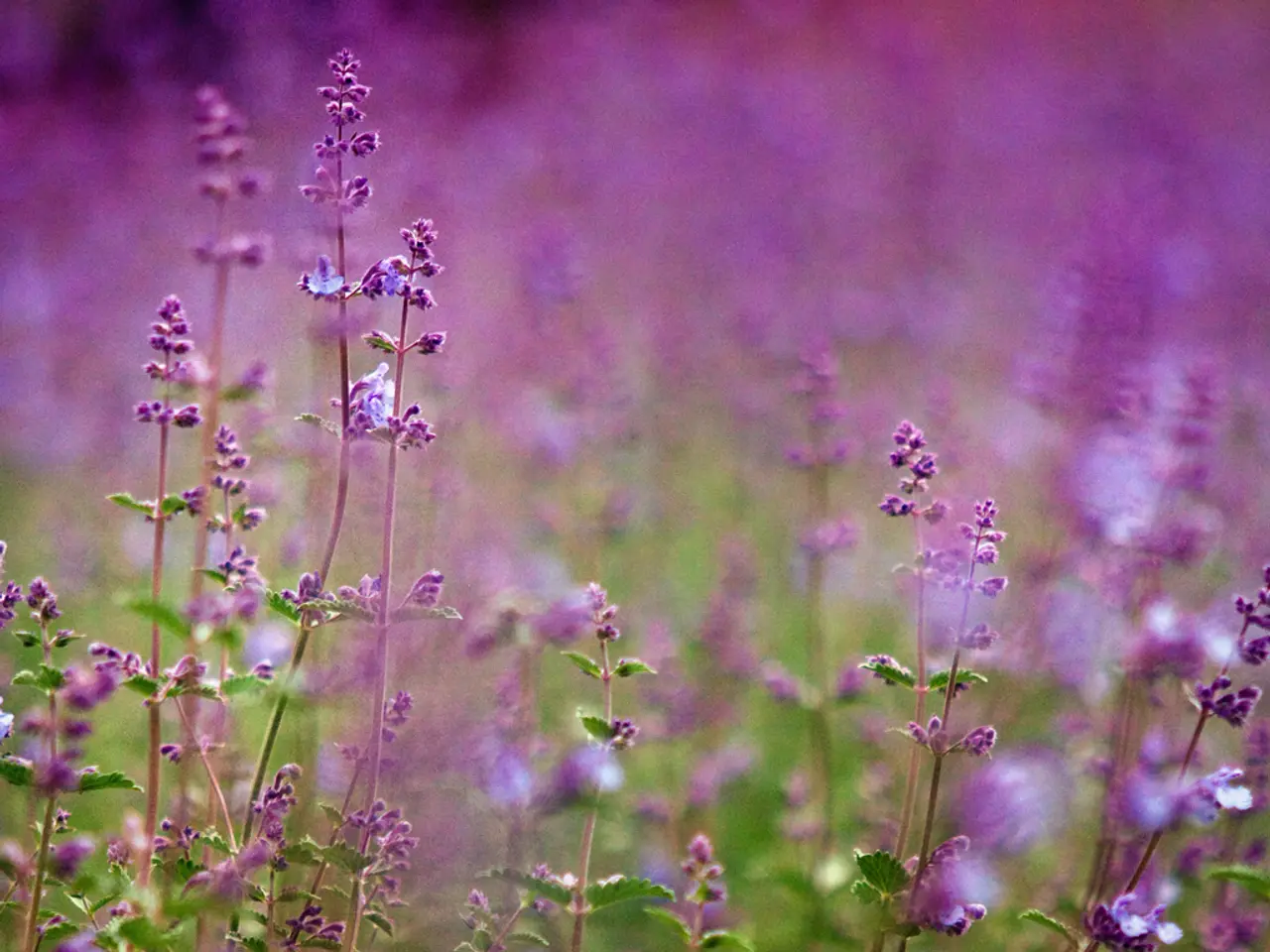Depression Alleviating Essential Oils: Potential Aids and Functional Mechanisms
In recent years, essential oils have gained popularity as a potential treatment for depression. These concentrated plant extracts, derived through distillation or mechanical methods like cold pressing, have shown promise in relieving psychological and physical symptoms linked to depression.
While the current scientific evidence supporting the use of essential oils as a treatment for depression is limited but promising, several key findings suggest their potential benefits. Patchouli oil, for instance, may have antidepressant properties by influencing neurotransmitters like serotonin and dopamine, though direct evidence is still emerging.
Bergamot oil has been shown to reduce anxiety and depression by lowering cortisol levels, while frankincense oil is known for its calming effects, which may improve mood by influencing neurotransmitter production. Ylang-ylang oil helps reduce stress and anxiety, promoting emotional balance.
The mechanisms behind essential oils' effects on mood are not fully understood, but it's believed they interact with the brain's limbic system, influencing emotional processing and neurotransmitter release. Components like sesquiterpenes in patchouli oil may enhance GABA activity, which helps regulate calmness.
Despite these promising findings, it's essential to note that most of the evidence is based on small-scale studies or anecdotal reports. Large-scale, controlled trials are needed to firmly establish the efficacy of essential oils for treating depression.
As such, essential oils should be considered complementary therapies rather than standalone treatments for depression. Further research is necessary to fully understand their effects and potential interactions with other treatments.
When using essential oils, it's crucial to perform a patch test to check for any allergic reactions. To do a patch test, dilute 3 drops of essential oil in a tablespoon of carrier oil and rub the mixture into an area the size of a quarter on the inside of the forearm.
In aromatherapy, people inhale oils or dilute them with a carrier oil and rub them into the skin. Studies have shown that inhaled lavender improved the sleep cycle of college students with sleep disturbances, a symptom of depression.
Essential oils serve many medical purposes, including acting as a natural mosquito repellent and reducing back and neck pain. Some people use essential oils to support depression treatment, but more research is necessary before doctors can recommend essential oils as a first-line treatment for depression.
In conclusion, while essential oils show promise in alleviating symptoms of depression and anxiety, further research is necessary to fully understand their effects and potential interactions with other treatments. Until then, it's advisable to approach essential oils as complementary therapies rather than standalone treatments for depression.
- Patchouli oil may possess antidepressant properties by influencing neurotransmitters like serotonin and dopamine, suggesting a potential benefit for those battling depression.
- Bergamot oil has been demonstrated to reduce anxiety and depression by lowering cortisol levels, offering a possible calming influence on an individual's well-being.
- In the realm of health-and-wellness, ylang-ylang oil is known for its ability to reduce stress and anxiety, contributing to emotional balance in users.
- Frankincense oil is recognized for its calming effects, which may help improve mood by influencing neurotransmitter production, making it a potential supplement for managing symptoms of depression.
- Nutrition and mental health can also benefit from therapies and treatments like essential oils, as studies have shown that inhaled lavender improved the sleep cycle of college students with sleep disturbances, a symptom often associated with depression.




